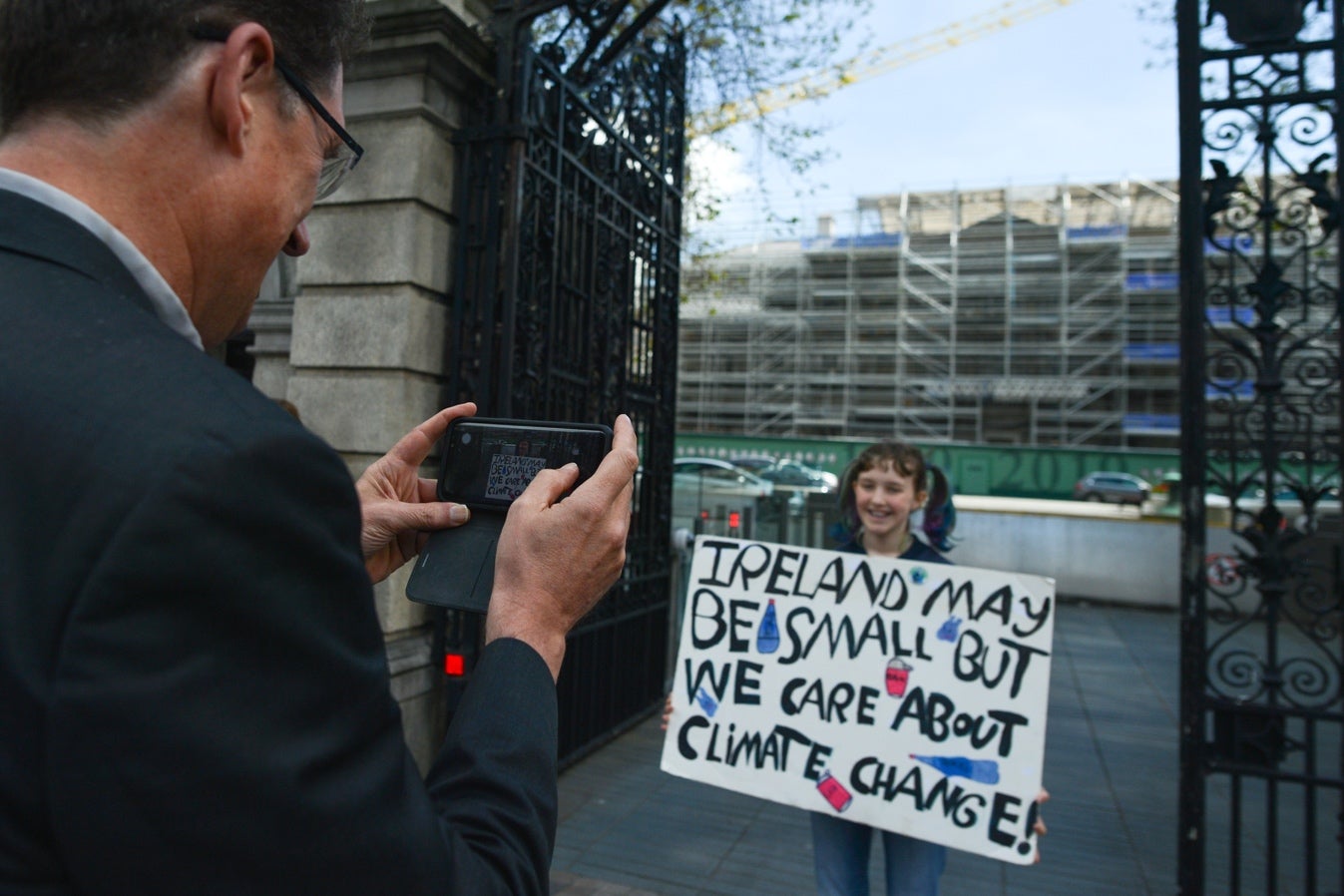On 13 June 2022, UK Foreign Secretary Liz Truss proposed a law that would allow the UK to back out of parts of the Northern Ireland Protocol, a post-Brexit trade agreement with the EU for Northern Ireland. The move risks triggering a full-blown trade war. The EU has warned the UK several times against violating the international treaty.
Northern Ireland’s government has not been operational since the Democratic Unionist Party (DUP) shut it down after losing elections for the first time to Sinn Fein on 6 May 2022. This came just weeks after the nation passed its first climate bill, meaning any government climate policy following the bill is on hold until Northern Ireland’s Parliament resumes.
The UK’s latest proposal further prolongs inaction. While Sinn Fein has repeatedly voiced its impatience to govern, the DUP has conditioned its return to government on Northern Ireland Protocol reforms.
While the Northern Irish government is not technically functioning, it remains a member of intergovernmental councils with Britain and the Republic of Ireland that can exercise authority over the island nations in various areas, including agriculture and the environment.
“[Despite divisions] the [Northern Irish Government] needs to work with [the UK and Republic of ireland] to set environmental standards,” the Republic of Ireland’s Energy Minister, Eamon Ryan, told Energy Monitor on the sidelines of an International Energy Agency conference on energy efficiency in Denmark on 8 June.

The Northern Ireland Protocol bill
According to the 1998 Good Friday Agreement, a devolved Northern Irish government can only operate if both Unionist (pro-UK) and Nationalist (Pro-Ireland) parties partake in equal measure. Truss has described the motive behind the bill as one of peacekeeping. “It is important to restore the Belfast Good Friday Agreement [and] power-sharing in Northern Ireland,” she told a BBC interviewer on 13 June.

US Tariffs are shifting - will you react or anticipate?
Don’t let policy changes catch you off guard. Stay proactive with real-time data and expert analysis.
By GlobalDataHowever, while the DUP might welcome these changes, the EU, Republic of Ireland, Sinn Fein and other Northern Irish parties have condemned them. Responding to concerns that the UK is violating international law, Prime Minister Boris Johnson called the bill a “relatively trivial set of adjustments”.
However, the bill would see various major reforms to Northern Ireland’s trade systems, including ousting the European Court of Justice from resolving Protocol disputes and granting the UK authority to set VAT, excise rates and tax reliefs in Northern Ireland, overriding the EU tax rules currently in place.
The EU has responded firmly to the bill, threatening “proportionate actions”.
An all-island Ireland environment policy
As conflict envelops Truss’s proposal for reform, discussions about the energy transition have fallen by the wayside.
“The Protocol doesn’t have a lot to say about the environment,” says Ryan, who comes from the Green Party. “The treaty between Europe and the UK was [just] a trade agreement, it didn’t look at the environment. There is a huge space where we can actually start working on common environmental [objectives].”
A focus on the environment, while seemingly unrelated, may benefit relations between the UK and EU, he suggests. “Setting common environmental standards [between mainland UK, Northern Ireland and the Republic of Ireland] [would] create a level playing field, which can make the Protocol much less problematic […] If you have similar environmental standards on the [two] islands, it is much easier to manage any protocols.
“In a strange way, because it is not central to the trade agreement, it might give us political space to work together – because it’s in both our interests.”
Climate action threatened by a North-South divide
Northern Ireland’s collapsed government does not excuse the country’s climate inaction, says Ryan. He says existing systems can transcend political division to allow common standard-setting between the North and Republic of Ireland and even between mainland Britain and the island of Ireland. “The Good Friday Agreement [as well as the British Irish Council and the North South Ministerial Council] allow for the evolution of institutions and [consideration of] topics,” he says. “The environment is ripe for using some of those mechanisms. The institutional structures are there – we just need to use them.”
He suggests that a North-South divide on climate policy would only hinder the race to decarbonise: “On an all-Ireland basis, we need to coordinate and to have common climate goals, because the island won’t work if we try and do it as two different systems – we won’t decarbonise the energy system, [nor] transport and agriculture, and so on.”
[Keep up with Energy Monitor: Subscribe to our weekly newsletter]



